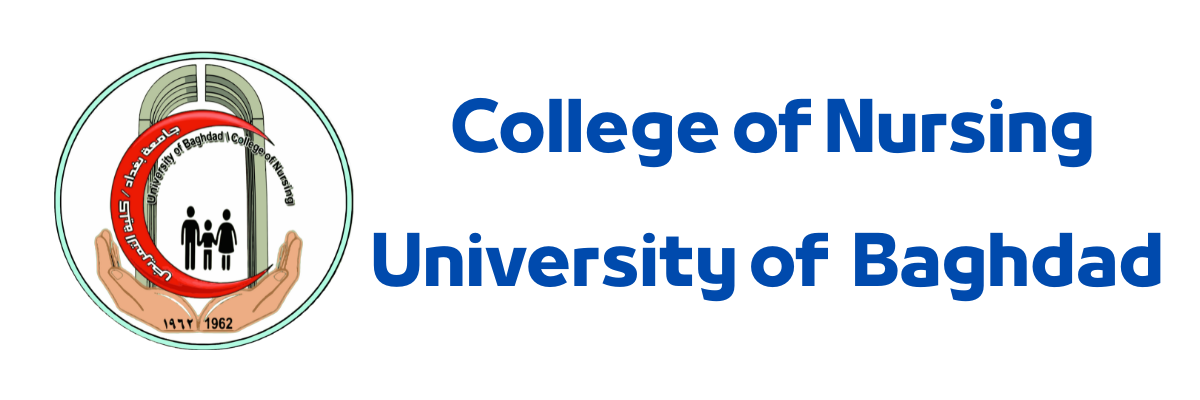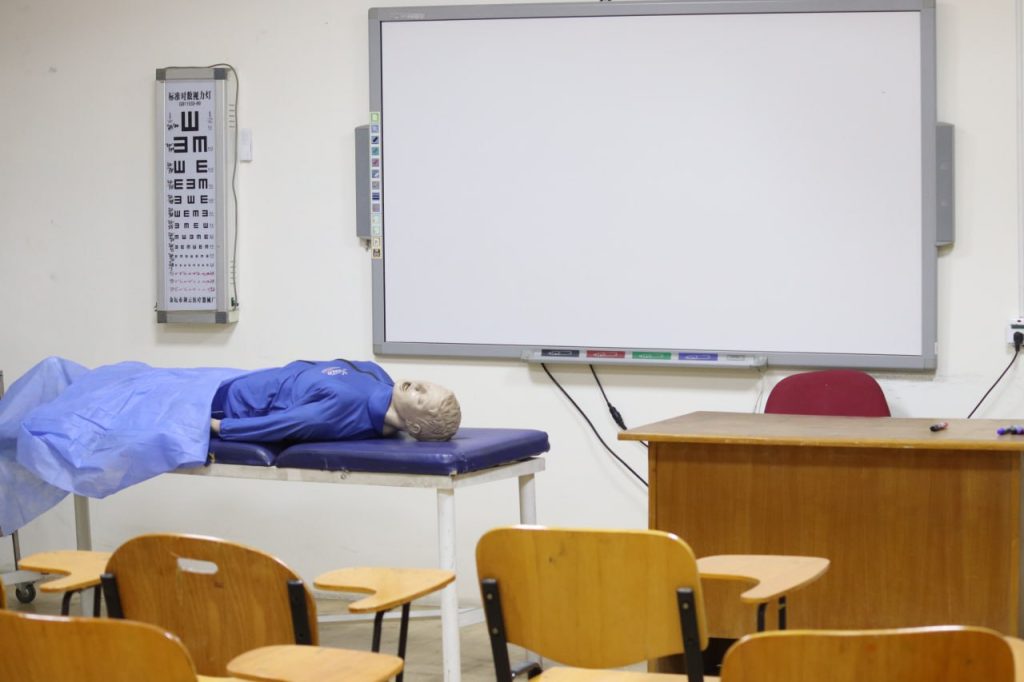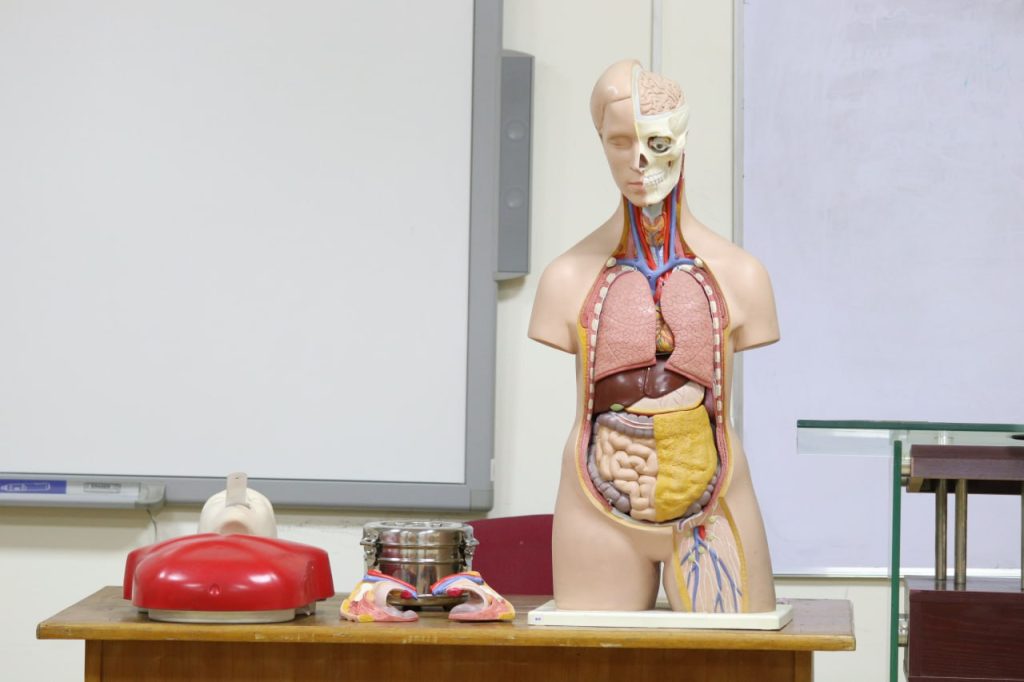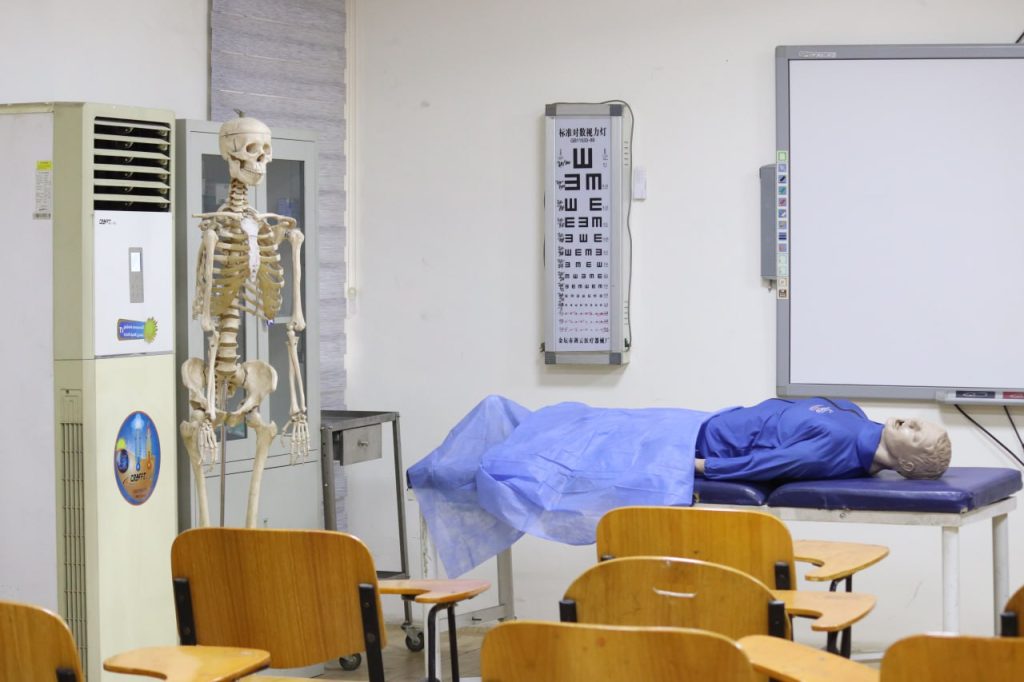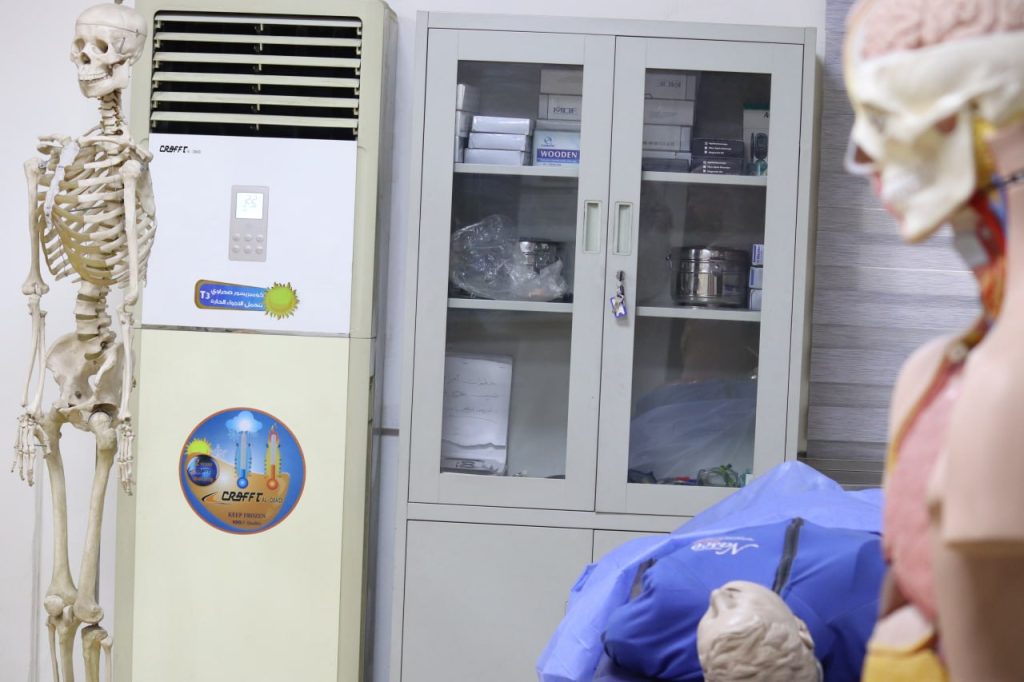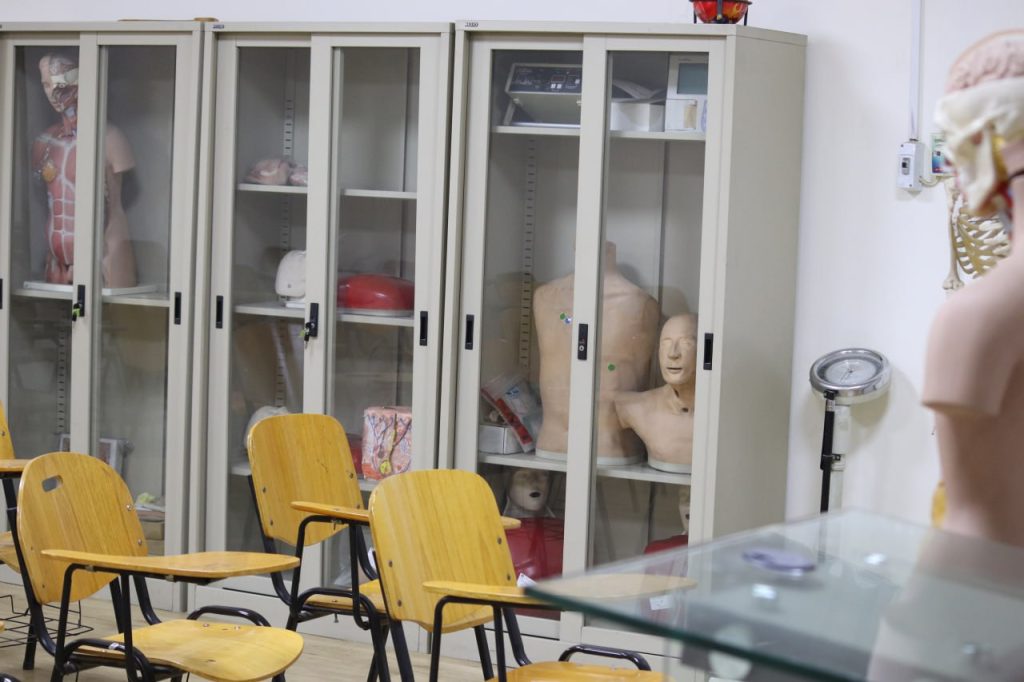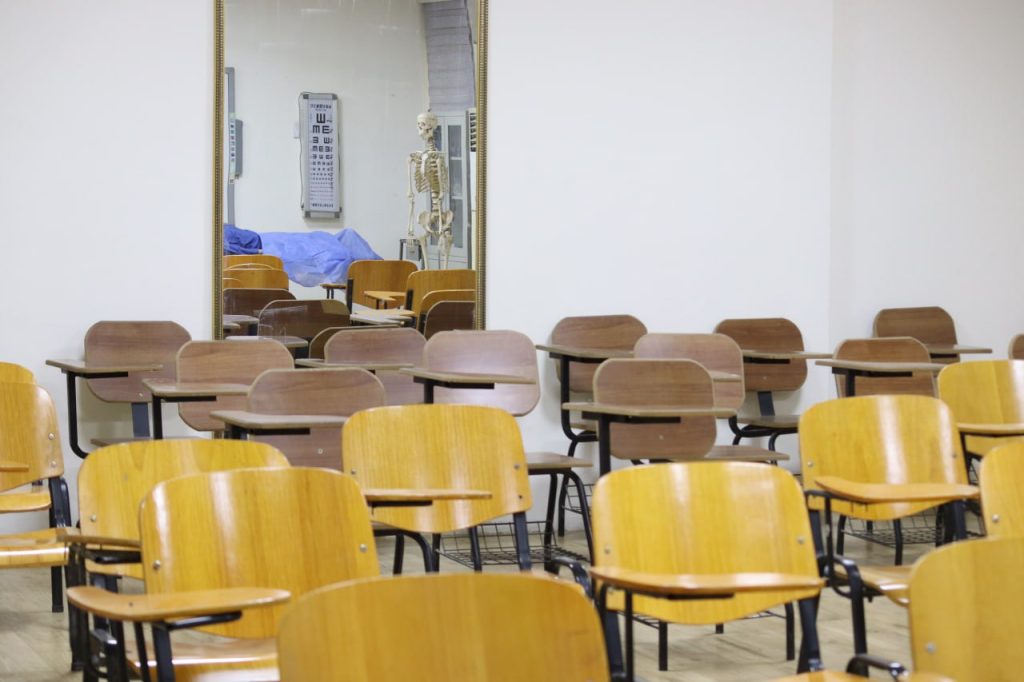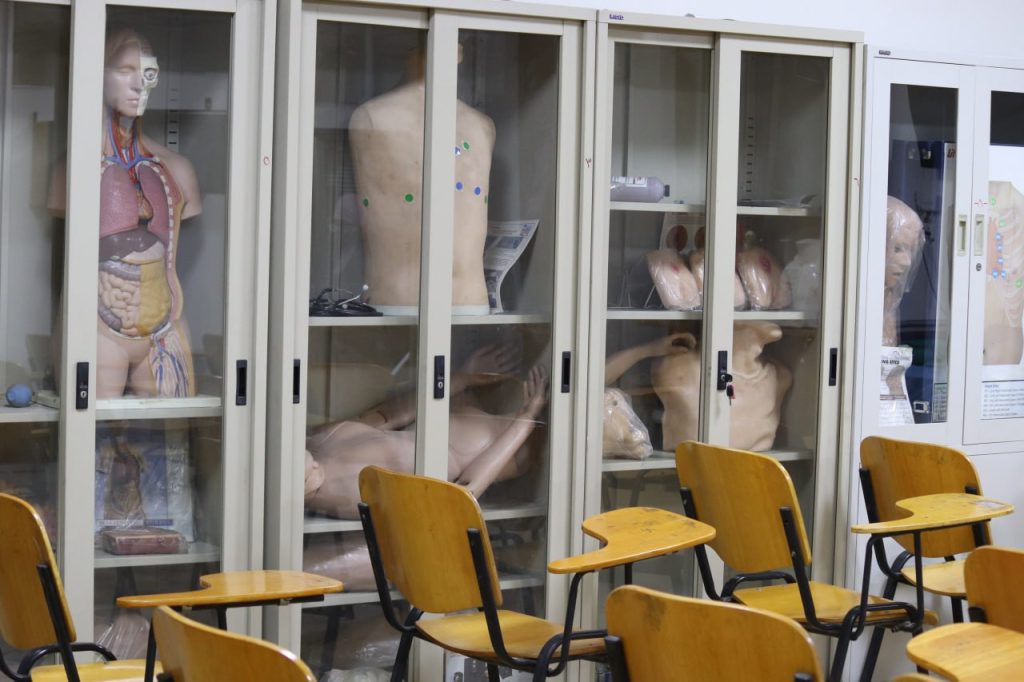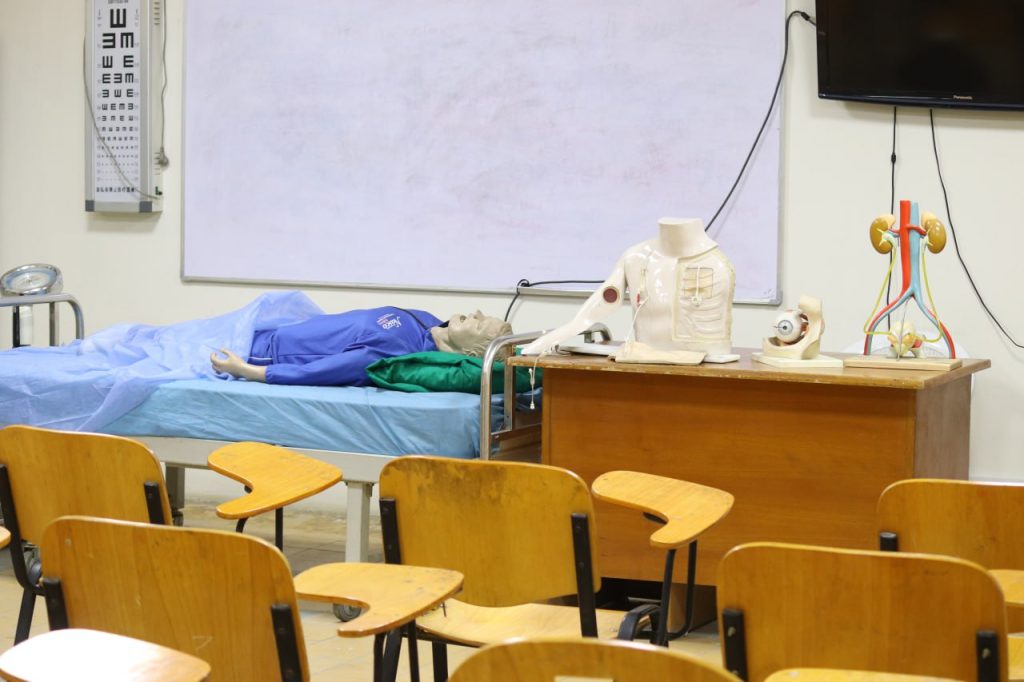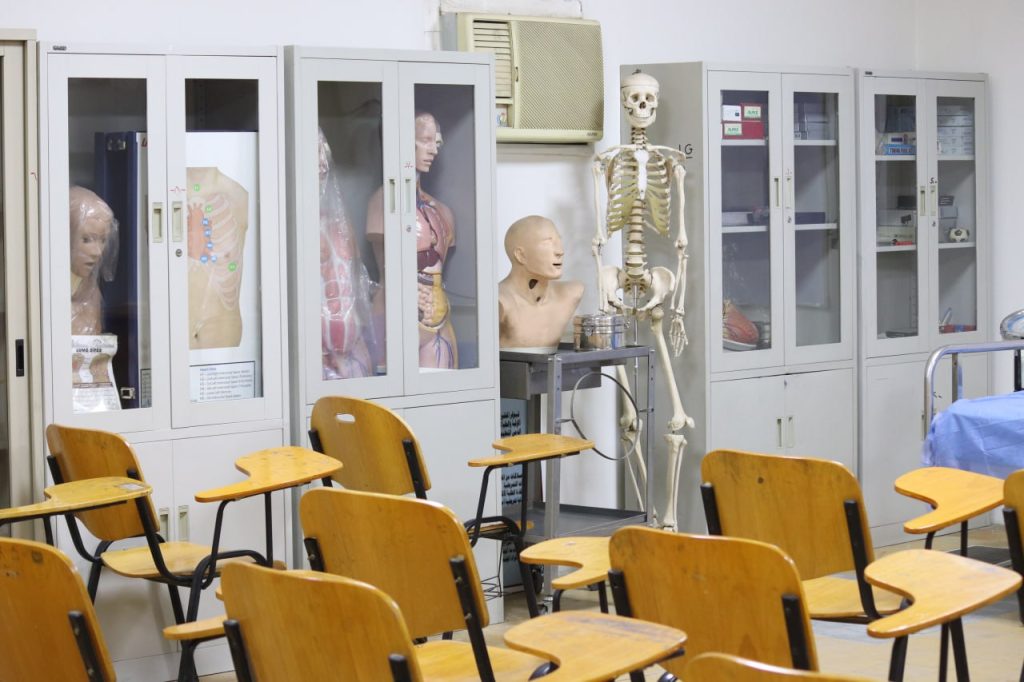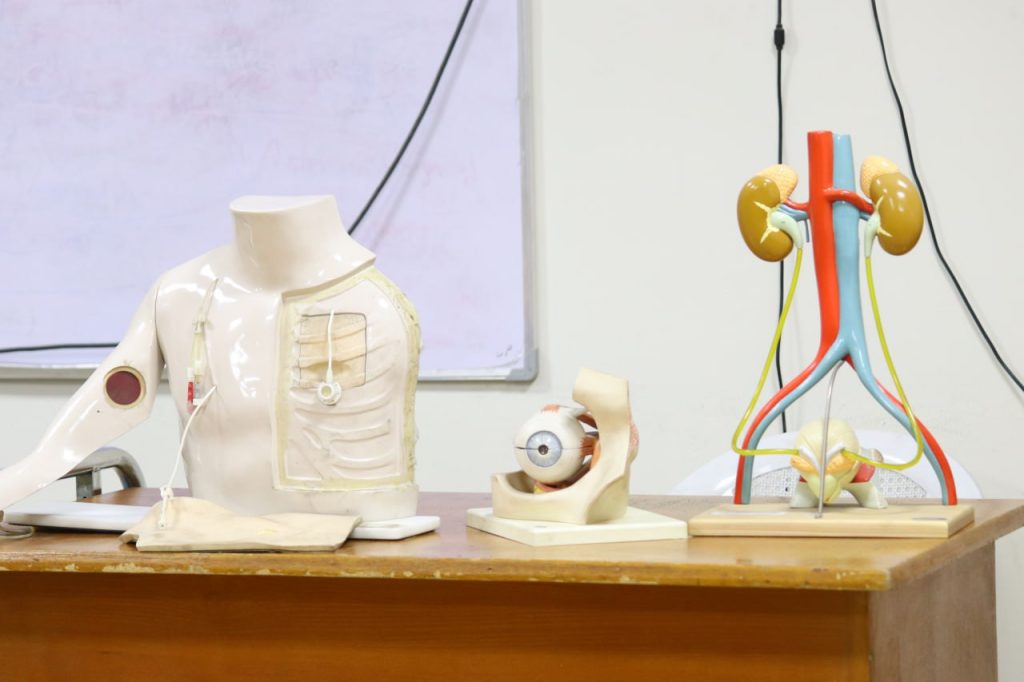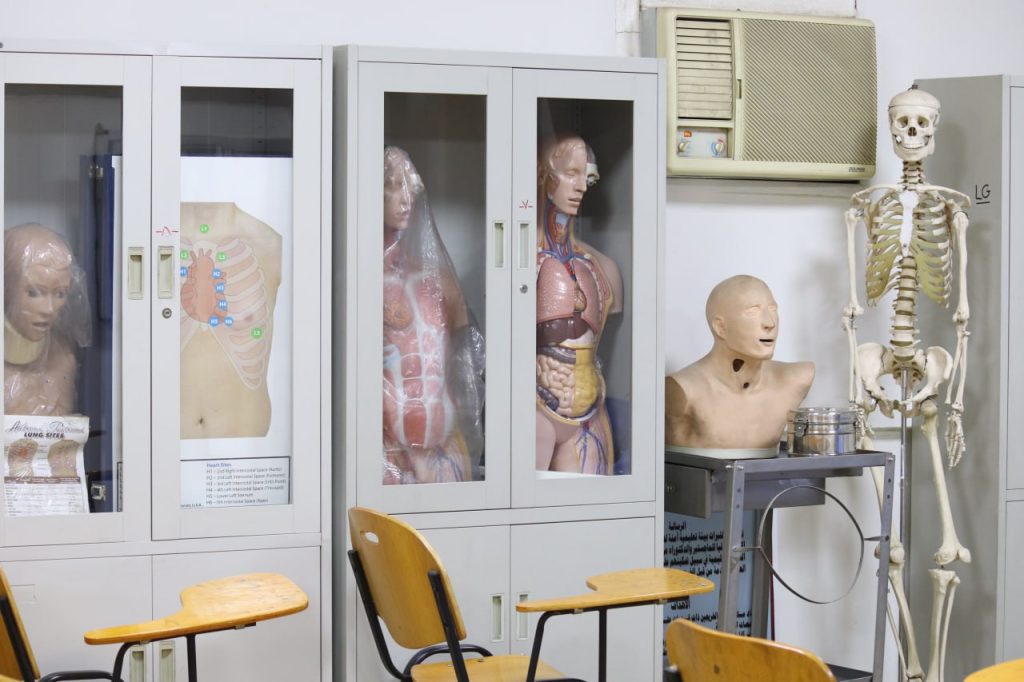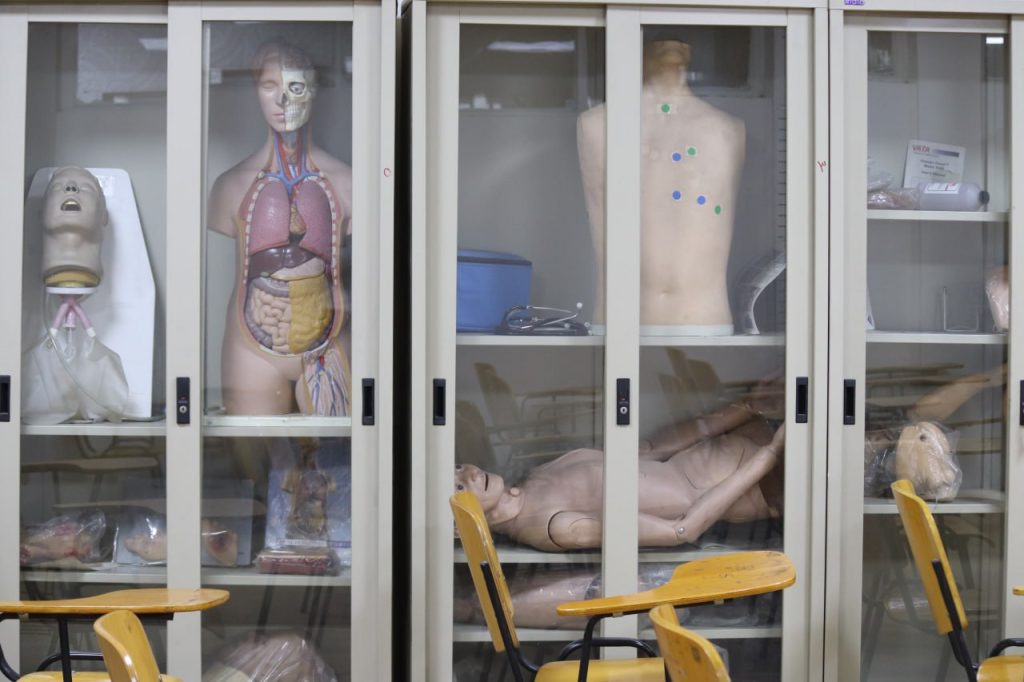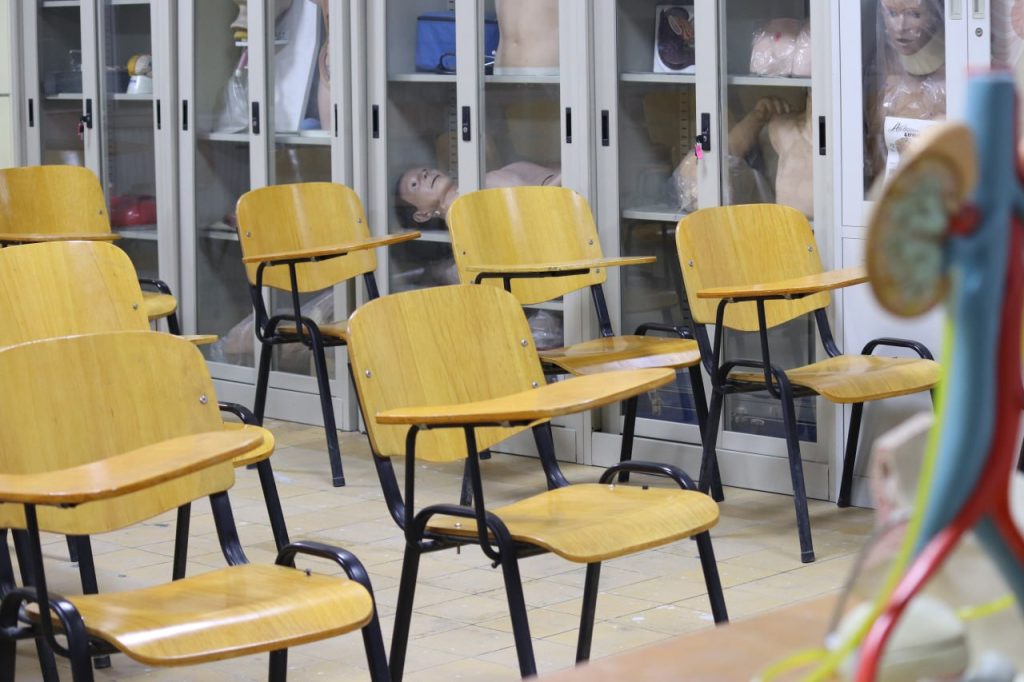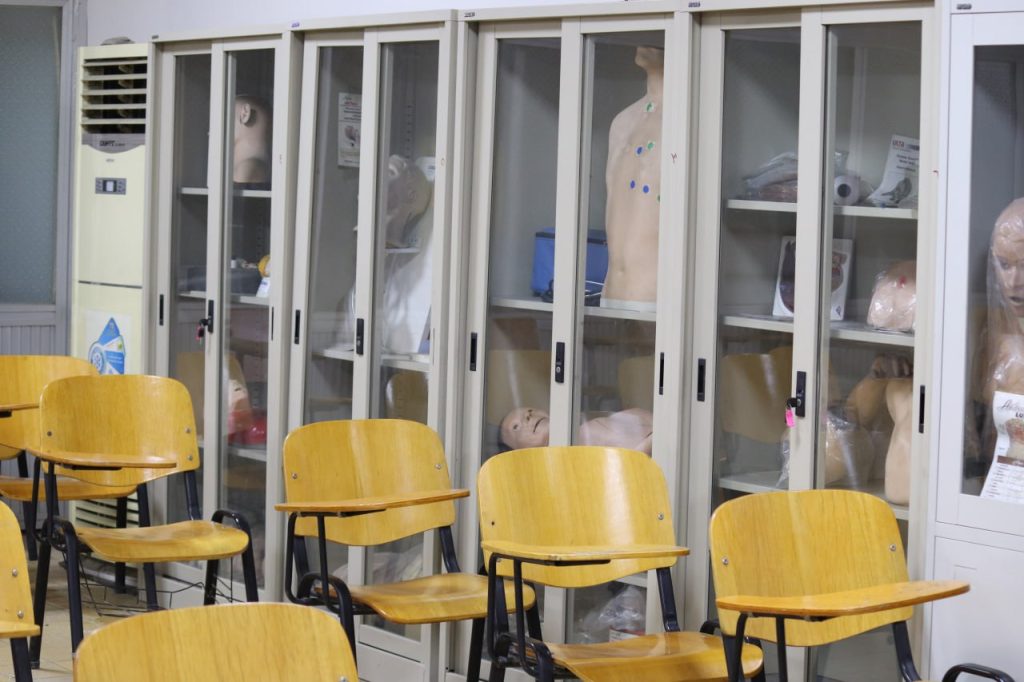Introduction to the laboratory
The Faculty of Nursing is one of the applied science faculties that relies heavily on practical laboratories to qualify and prepare students to acquire nursing skills before applying them in real life. Within hospitals and health institutions, the theoretical aspect is integrated with the practical aspect.
Experience has shown that good preparation of nursing students in practical laboratories helps bridge the gap between theory and practice and boosts students’ self-confidence.
There is no doubt that providing an environment that mimics that of hospitals and health institutions by ensuring that laboratories are equipped in a manner that closely resembles those institutions will contribute to raising the professional and technical performance of nursing students. This is what drives the college to strive to keep up with everything that is new and appropriate for the times.
Vision, Mission, and Objective
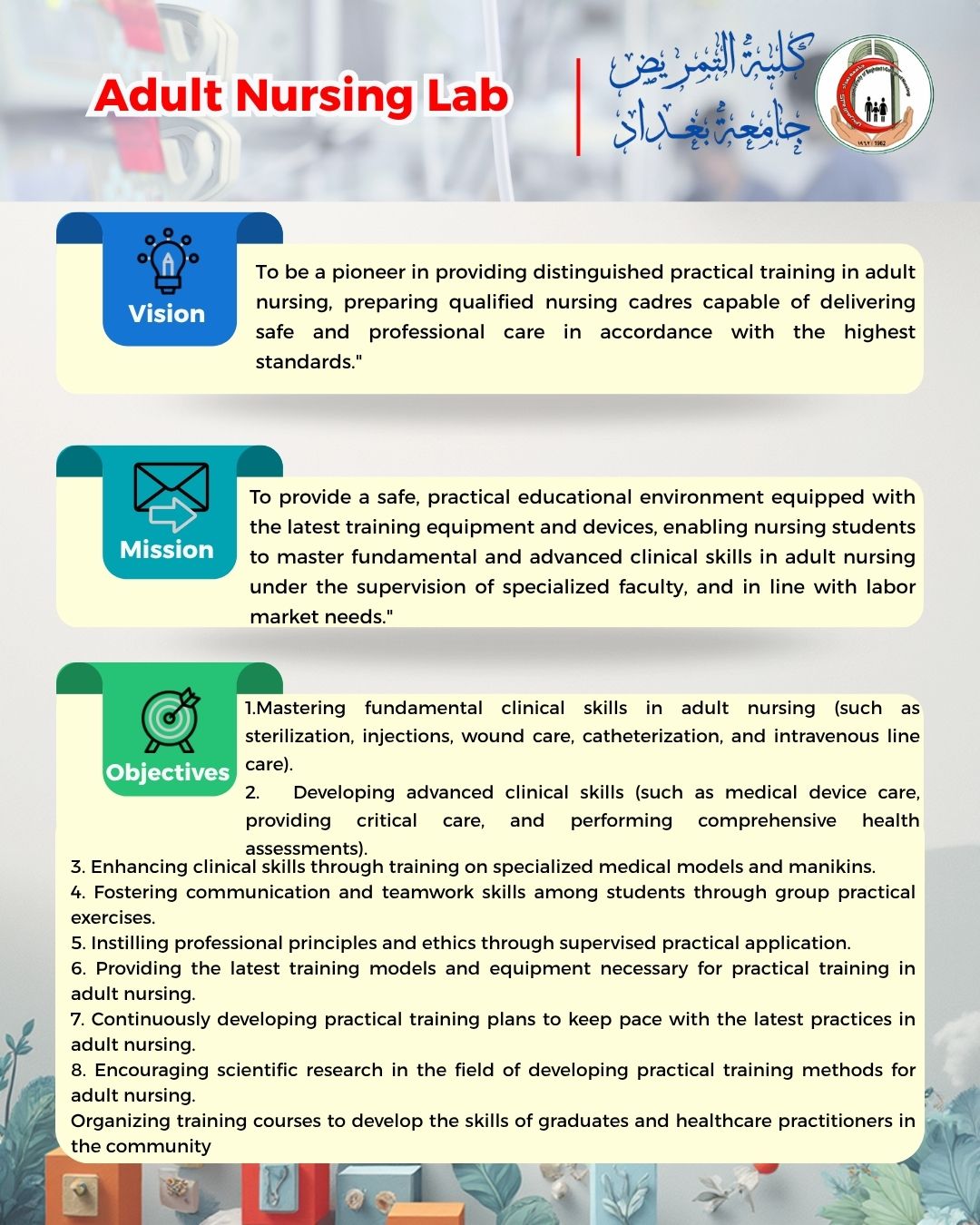
Photos of adult nursing laboratories
Objectives of the Nursing Fundamentals Laboratory
- It provides a suitable place that mimics and resembles a hospital environment, equipped with various equipment and devices that contribute to preparing and training nursing college students in various nursing skills.
Providing an environment that mimics the field environment.
Boosting student confidence and bridging the gap between theory and practice.
Providing opportunities to acquire various practical training skills.
Equipping students with the skills necessary to work within an integrated health team.
Preparing graduates with high scientific and practical capabilities in the fields of nursing and medical sciences.
Developing students’ academic and research competencies, both scientifically and practically.
Preparing and publishing various scientific research in the medical, health, and environmental fields.
Organizing various workshops and courses to train different cadres, including teaching and technical staff, on modern technologies and advanced equipment.
Contributing to community service by organizing lectures and seminars with the aim of raising the health culture of community members.
Organizing various seminars and announcements to raise medical and health awareness about various diseases, prevention, and diagnosis, especially communicable diseases.
Excellence in teaching and learning styles by providing a collaborative, multimedia learning environment.
Preparing, training, and graduating distinguished national talents with high qualifications in various nursing and medical specialties.
Developing students’ behaviors so that they can demonstrate good professional conduct in dealing with patients and their families, as well as with members of the medical team.
Developing and implementing educational and training programs for staff in all specialties of the department.
Developing the cognitive and practical skills of graduates.
Understanding the research design process and methods.
Establishing postgraduate programs for graduates of the department, researchers, and graduates from other universities.
Adult Nursing Laboratory Letter
The laboratories provide a safe learning environment for nursing students in undergraduate, master’s and doctoral studies through the use of various educational mannequins to enable them scientifically and experimentally and improve the quality of care provided by graduates that meets the health needs of adult patients.
Vision for the Adult Nursing Laboratory
The vision of adult nursing laboratories is to provide high-quality education that prepares trainees and students to become competent nurses capable of providing comprehensive nursing care to adult patients through the use of various educational manikins.
General objective
1. Preparing graduates with high scientific and practical skills in nursing specializations.
2. Developing students’ academic and research skills, both scientifically and practically.
3. Providing nursing care through training on mannequins and laboratory equipment.
4. Providing the appropriate environment for training in providing comprehensive nursing care to adult patients.
5. Developing communication skills through role-playing and case study training.
6. Organizing various workshops and courses to train different cadres, including teaching and professional cadres, on modern techniques, advanced equipment, and nursing procedures.
7. Contributing to community service by organizing lectures and seminars with the aim of raising the health culture of the community.
